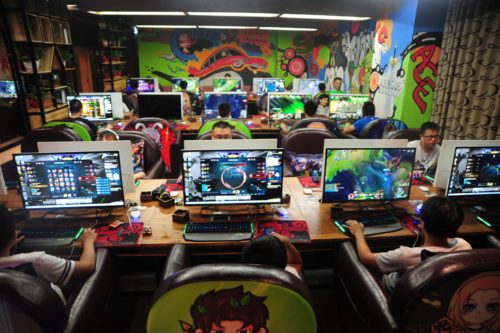Chinese parents defend son’s choice to wear skirt, sparking conversations about gender-neutral parenting
In a viral social media post, a Chinese father tells the story of his seven-year-old son wearing a skirt to school and getting chastised by teachers for "dressing inappropriately."

When a seven-year-old boy wore a skirt to school, other kids teased him. And when some crossed the line and tried to lift his skirt, the boy’s teachers chastised him for wearing “inappropriate clothes.” But the boy’s own parents were supportive and open-minded.
According to @仰泳的海星, who shared the story in a viral post (in Chinese) on the question-and-answer site Zhihu, his son first expressed interest in dresses because he thought they were “pretty” and good for the summer heat. Seeing “no reasons to object,” the parents took the boy to a mall and let him pick his first dress. When the boy said he wanted to wear the dress to his school, the parents were hesitant, worrying that the unconventional outfit would attract mockery from his peers.
Their worries proved right. But to their surprise, the boy was unbothered by the confused looks from his classmates. The main problem, according to the parents, were the teachers. Writes the dad:
“The thing that upset my son the most was a class on ‘morals and laws’ in the afternoon. The teacher spent the entire time scolding my son for wearing a dress. According to my son, the teacher is in her fifties and she said, ‘Boys should act like boys. They can’t wear dresses.’ Some girls in the class raised their hands and voice disagreement, arguing that boys have the freedom to wear dresses too. To which the teacher replied, ‘Stop talking about freedom. That’s an American thing. There’s no such thing as American freedom in China. During the pandemic, everyone in China was so self-disciplined, and that’s why the pandemic was handled so well. Everyone in America was so free and look how that did for them?”
The father’s post is worth reading in its entirety, but one part that’s particularly worth highlighting is where he explains how he feels about the experience:
“My wife and I weren’t enraged. When we hugged our son after he came home from school, we felt sad. Sad over Chinese education. It’s 2021 and society is still so intolerant. It would be some sort of progress if the school didn’t react at all.”
“We told our son that people are entitled to have their own opinions about things. There’s no right or wrong. We do what we like and the bottom line is we don’t harm ourselves or disturb others.”
“After my son went to bed, my wife and I looked at each other and hugged. We are grateful for today, for this rare opportunity to educate our son. But at the same time, I couldn’t help but think that my son was just wearing a dress, and a dress is easy to take off. But there are many other kids who face ridicule or even bullying due to their voices or appearance. They can’t easily take those qualities off. What can they do?”
The father winds up his post with these words:
“Some things need to be done by some people. Even though it’s an uphill battle, I hope that I will be as brave as my son.”
On Zhihu, the post has received more than 20,000 likes and almost 8,500 comments as of today. It has also made its way over to other social media platforms like Weibo, sparking a broad conversation about gender stereotypes and how to raise kids outside traditional gender norms.
While the general reactions to the post were overwhelmingly positive, with many applauding the parents for letting their son wear what he wants, some suggested that they should have consulted a pediatric psychologist first before making a decision that could be life-altering for the boy.
Gender-neutral parenting, the practice of encouraging a child to discover their own identity by eliminating restrictions or expectations from society, has been on the rise in countries like the U.S., but the concept is still relatively novel in China, where gender roles are much less blurred than in Western culture. Some government officials even believed that the nation’s overprotected young boys were becoming too weak, leaving China facing what they described as a “crisis of masculinity.”
To encourage boys to man up, the Chinese Ministry of Education issued a plan earlier this year, which contained four fitness- and health-related measures to enhance teenage boys’ “masculine energy,” including hiring more sports instructors and redesigning physical education classes in elementary and secondary schools.






